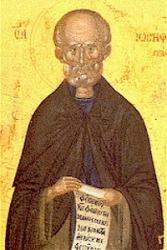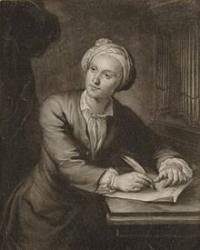
810 - 886 Person Name: Joseph, The Hymnographer Meter: 6.6.6.6.8.8 Author of "Safe home, safe home in port" in The Methodist Hymn-Book with Tunes Joseph, St., the Hymnographer. A native of Sicily, and of the Sicilian school of poets is called by Dr. Neale (in his Hymns of the Eastern Church), Joseph of the Studium, in error. He left Sicily in 830 for a monastic life at Thessalonica. Thence he went to Constantinople; but left it, during the Iconoclastic persecution, for Rome. He was for many years a slave in Crete, having been captured by pirates. After regaining his liberty, he returned to Constantinople. He established there a monastery, in connection with the Church of St. John Chrysostom, which was filled with inmates by his eloquence. He was banished to the Chersonese for defence of the Icons, but was recalled by the empress Theodora, and made Sceuophylax (keeper of the sacred vessels) in the Great Church of Constantinople, through the favour of the patriarch Ignatius. He stood high also in the favour of Photius, the rival and successor of Ignatius, and accompanied him into banishment. He died at an advanced age in 883. He is commemorated in the Calendars of the Greek Church on April 3rd. He is the most voluminous of the Greek hymnwriters. There are more than two hundred Canons under the acrostic of his name, in the Menaea. Cardinal Pitra says he is reported to have composed a thousand. There is some difficulty in distinguishing his works from those of the brother of Theodore of the Studium, Joseph of Thessalonica. This latter poet, and not the more celebrated Joseph the Hymnographer, was named Joseph of the Studium. [Rev. H. Leigh Bennett, M.A.]
-- John Julian, Dictionary of Hymnology (1907)
See also in:
Wikipedia
St. Joseph the Hymnographer


 My Starred Hymns
My Starred Hymns







